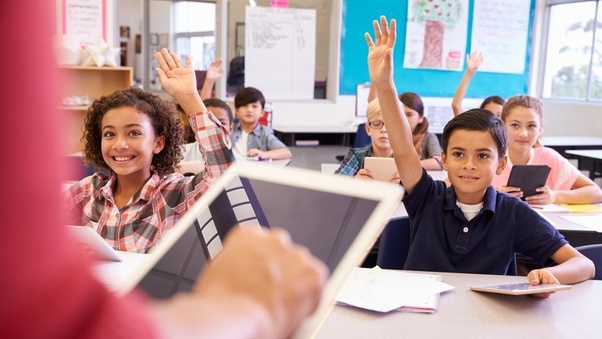
Introduction:
In the 21st century school find themselves at the intersection of tradition and innovation, navigating a landscape characterized by unprecedented technological advancements, cultural shifts, and global connectivity. This article explores the evolving nature of schools in the modern era, examining the challenges they face and the innovative strategies they employ to prepare students for a future that demands adaptability and a diverse skill set.
Technology Integration:
One of the most significant transformations in contemporary education is the integration of technology into the learning process. Digital tools, interactive platforms, and online resources have become integral components of modern classrooms. This shift not only enhances the educational experience but also equips students with essential digital literacy skills, preparing them for the technology-driven world beyond school.
The advent of virtual classrooms, remote learning, and educational apps has accelerated the evolution of teaching methodologies. The challenge lies in ensuring equitable access to technology and addressing the digital divide to guarantee that all students can benefit from these advancements.
Personalized Learning:
Recognizing the diverse learning styles and pace of individual students, the 21st-century school is embracing personalized learning approaches. Adaptive learning platforms, tailored assignments, and flexible curriculum structures cater to the unique needs of each student. This shift from a one-size-fits-all model aims to foster deeper understanding, engagement, and mastery of subjects.
Personalized learning also encourages students to take ownership of their education, promoting self-directed learning and critical thinking. The challenge remains in effectively implementing these approaches while maintaining a balance with standardized assessments and curricular requirements.
Globalization and Cultural Competence:
In an increasingly interconnected world, schools are placing a greater emphasis on global awareness and cultural competence. Exposure to diverse perspectives, languages, and worldviews is considered essential for preparing students to thrive in a globalized society. International collaborations, exchange programs, and multicultural education initiatives contribute to fostering a sense of global citizenship.
However, the challenge lies in navigating cultural sensitivities and ensuring that the curriculum reflects the richness of global diversity. Schools need to strike a balance between preserving cultural identity and preparing students for a world where cross-cultural collaboration is paramount.
Emphasis on Soft Skills:
Beyond academic achievement, the 21st-century school recognizes the importance of developing soft skills or 21st-century skills. Communication, collaboration, critical thinking, creativity, and adaptability are now considered essential for success in the workplace and in life. Project-based learning, group activities, and extracurricular programs are designed to nurture these skills alongside traditional academic subjects.
However, the challenge is to assess and measure these soft skills effectively, as they are often intangible and context-dependent. Schools are exploring innovative assessment methods to evaluate students’ holistic development.
Sustainability and Environmental Education:
With growing environmental concerns, schools are incorporating sustainability education into their curricula. Environmental awareness, conservation projects, and eco-friendly practices within school campuses contribute to shaping environmentally conscious citizens. This approach not only fosters a sense of responsibility towards the planet but also prepares students for careers in sustainable industries.
The challenge remains in integrating sustainability across all subjects and ensuring that it becomes a pervasive aspect of the school culture. Striking a balance between academic content and practical eco-conscious initiatives is crucial for creating a lasting impact.
Community Engagement and Service Learning:
21st-century schools are increasingly emphasizing community engagement and service learning. Beyond academic achievements, students are encouraged to actively participate in community service projects, fostering a sense of social responsibility. These experiences contribute to character development, empathy, and a broader understanding of societal challenges.
The challenge lies in integrating service learning seamlessly into the curriculum without overburdening students or compromising academic rigor. Schools must navigate the delicate balance between academic excellence and the development of compassionate, socially conscious individuals.
Conclusion
Navigating the Future of Education:
The 21st-century school is a dynamic and evolving entity, shaped by technological advancements, cultural shifts, and the changing needs of society. By embracing innovation, personalized learning, global perspectives, soft skills development, sustainability education, and community engagement, schools are striving to prepare students for the challenges and opportunities of an unpredictable future. Navigating this complex landscape requires a commitment to continuous improvement, adaptability, and a holistic approach to education that goes beyond traditional paradigms. The journey towards educational excellence in the 21st century is an ongoing narrative, with schools playing a pivotal role in shaping the future generations that will lead our world.
